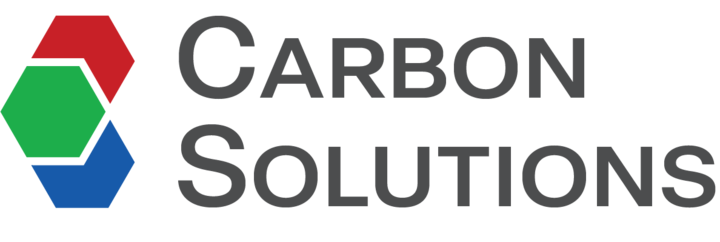Webinar: Get (HEAT) Pumped- A Comparison of Technologies for Renewable Heat

The Local Air Emissions Tracking Atlas (LOCAETA) project is a platform and analysis approach that allows us to understand the impacts of industrial facilities on surrounding communities. In particular, for changes in industrial emissions due to various interventions, we estimate the changes in air pollutant concentrations and the resulting public health impacts, and display them in an interactive Explorer for ease of communication and use. These scenarios may be co-benefits to industrial facility decarbonization, or other interventions such as landfill enclosed flares, the establishment of data centers, or other changes that may affect neighboring communities.
In this recorded webinar, Carbon Solutions and the MIT Concrete Sustainability Hub explore how to reduce investment barriers to large-scale carbon capture, transport, and storage (CCUS) around industrial carbon hubs.
Speakers: Marcos Miranda – Carbon Solutions, Elizabeth Moore – Massachusetts Institute of Technology (MIT)
This session focuses on the concrete and cement sector, using spatial-economic modeling to identify cost-effective strategies for infrastructure buildout and deployment at scale.
Industrial decarbonization with CCS
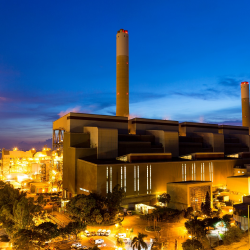
The study presents potential carbon capture and storage scenarios to inform the understanding of infrastructure requirements for decarbonizing the industrial sector in the United States.
Carbon Solutions: Services, Software, and Projects
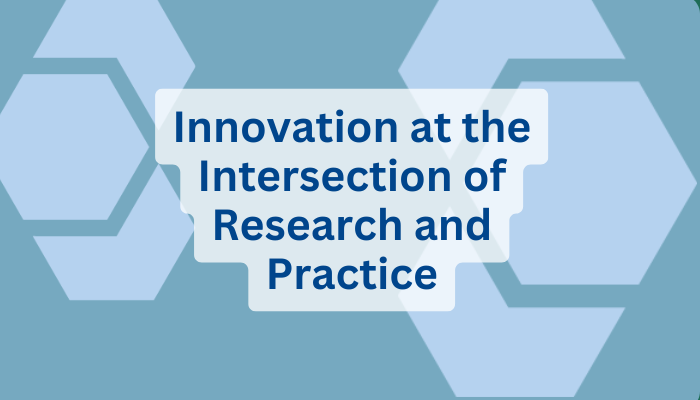
Carbon Solutions: Services, Software, and Projects Carbon Solutions combines research, services, and software to advance low-carbon energy solutions. This presentation offers an overview of our company, highlighting services, proprietary tools, example projects, and capabilities that define who we are. Explore the full presentation below to see how our expertise supports the transition to a low-carbon […]
Webinar: Air Quality and Public Health Impacts from Industry and Decarbonization: Case Studies using the Local Air Emissions Tracking Atlas (LOCAETA)

The Local Air Emissions Tracking Atlas (LOCAETA) project is a platform and analysis approach that allows us to understand the impacts of industrial facilities on surrounding communities. In particular, for changes in industrial emissions due to various interventions, we estimate the changes in air pollutant concentrations and the resulting public health impacts, and display them in an interactive Explorer for ease of communication and use. These scenarios may be co-benefits to industrial facility decarbonization, or other interventions such as landfill enclosed flares, the establishment of data centers, or other changes that may affect neighboring communities.
In this recorded webinar, Carbon Solutions and the MIT Concrete Sustainability Hub explore how to reduce investment barriers to large-scale carbon capture, transport, and storage (CCUS) around industrial carbon hubs.
Speakers: Marcos Miranda – Carbon Solutions, Elizabeth Moore – Massachusetts Institute of Technology (MIT)
This session focuses on the concrete and cement sector, using spatial-economic modeling to identify cost-effective strategies for infrastructure buildout and deployment at scale.
Webinar: Applying Life Cycle Assessment in Project Design

In this webinar, Carbon Solutions Research Engineer Kat Sale presented an overview of how we apply Life Cycle Assessment (LCA) to support federal, industrial, and community partners. The presentation covered the fundamentals of LCA and showed how it’s used to evaluate emissions, co-benefits, and the full-system impacts of decarbonization strategies.
In this recorded webinar, Carbon Solutions and the MIT Concrete Sustainability Hub explore how to reduce investment barriers to large-scale carbon capture, transport, and storage (CCUS) around industrial carbon hubs.
Speakers: Marcos Miranda – Carbon Solutions, Elizabeth Moore – Massachusetts Institute of Technology (MIT)
This session focuses on the concrete and cement sector, using spatial-economic modeling to identify cost-effective strategies for infrastructure buildout and deployment at scale.
Presenting at CCUS Latin America 2025
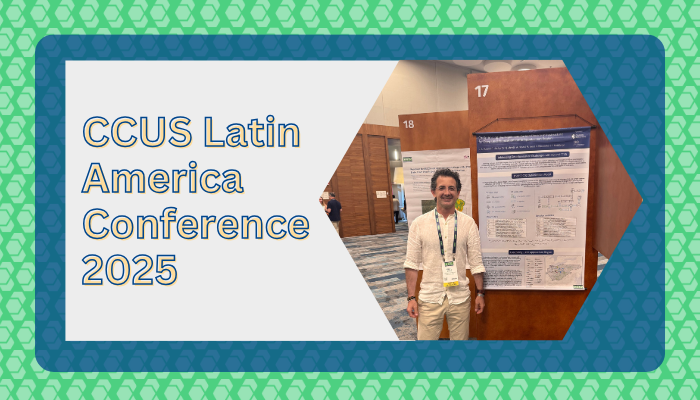
Our team recently shared a new modeling approach at CCUS Latin America 2025 that integrates hydrogen and CO₂ infrastructure planning. The poster, led by Juan Carlos Duque, Qasim Mehdi, and partners at GTI Energy, focuses on Appalachia—using a mixed-integer linear programming model to optimize where hydrogen is produced and stored, where CO₂ is captured, and […]
Presenting at CCUS Latin America 2025
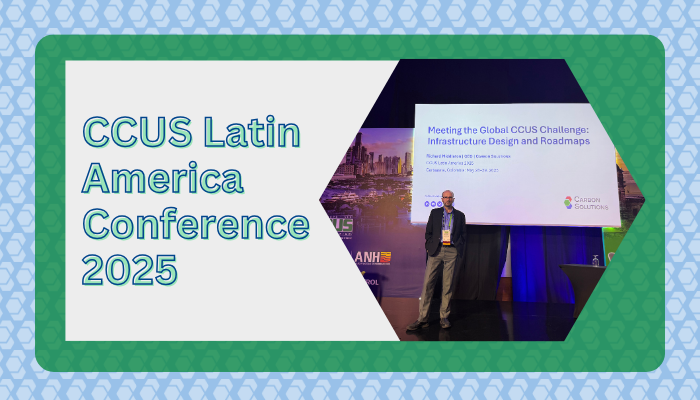
At CCUS Latin America 2025, Erin Middleton shared Carbon Solutions’ work on planning and modeling regional carbon hubs in the U.S.—with Wyoming as a key example. Her presentation covered our work on the Wyoming Trails Carbon Hub (WyoTCH) and Carbon Blueprint projects, showing how emissions data, regulatory timelines, land ownership, and subsurface storage all come […]
Webinar: Scaling Cost-Effective CCUS Infrastructure for Hard-to-Abate Industries

How can we build cost-effective CCUS infrastructure to decarbonize hard-to-abate sectors like concrete, cement, steel, and chemicals?
In this recorded webinar, Carbon Solutions and the MIT Concrete Sustainability Hub explore how to reduce investment barriers to large-scale carbon capture, transport, and storage (CCUS) around industrial carbon hubs.
Speakers: Marcos Miranda – Carbon Solutions, Elizabeth Moore – Massachusetts Institute of Technology (MIT)
This session focuses on the concrete and cement sector, using spatial-economic modeling to identify cost-effective strategies for infrastructure buildout and deployment at scale.
📅 Originally aired: April 30, 12–1 PM ET
Presenting at CCUS Latin America 2025

At CCUS Latin America 2025, our CEO Richard Middleton walked through the advanced modeling tools that Carbon Solutions uses to help answer this question. His presentation covered how SimCCS PRO, CostMAP PRO, CO₂NCORD, and SCO₂T PRO work together to guide infrastructure decisions from start to finish—whether you’re planning CO₂ pipelines across Wyoming or mapping capture-to-storage […]
Report: Gigatonne One: A CCS roadmap for the United States and beyond
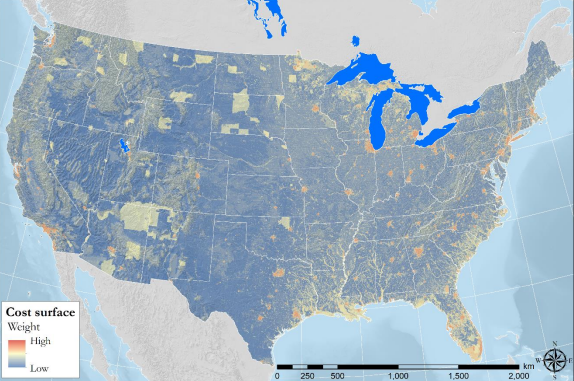
Read the full report here.
